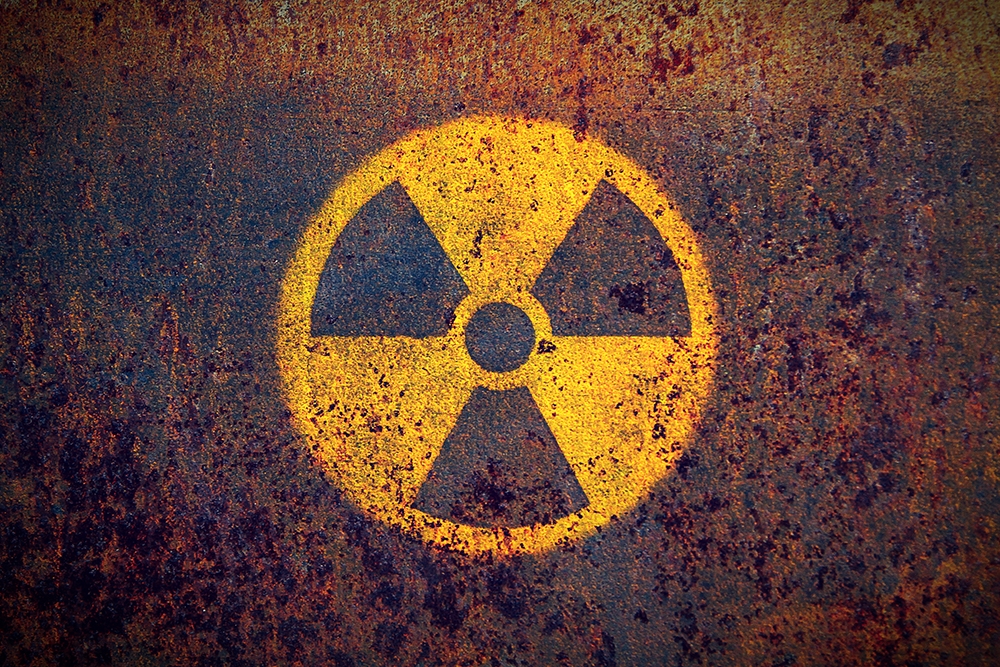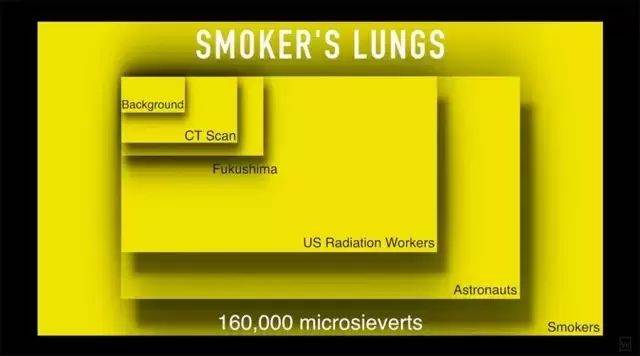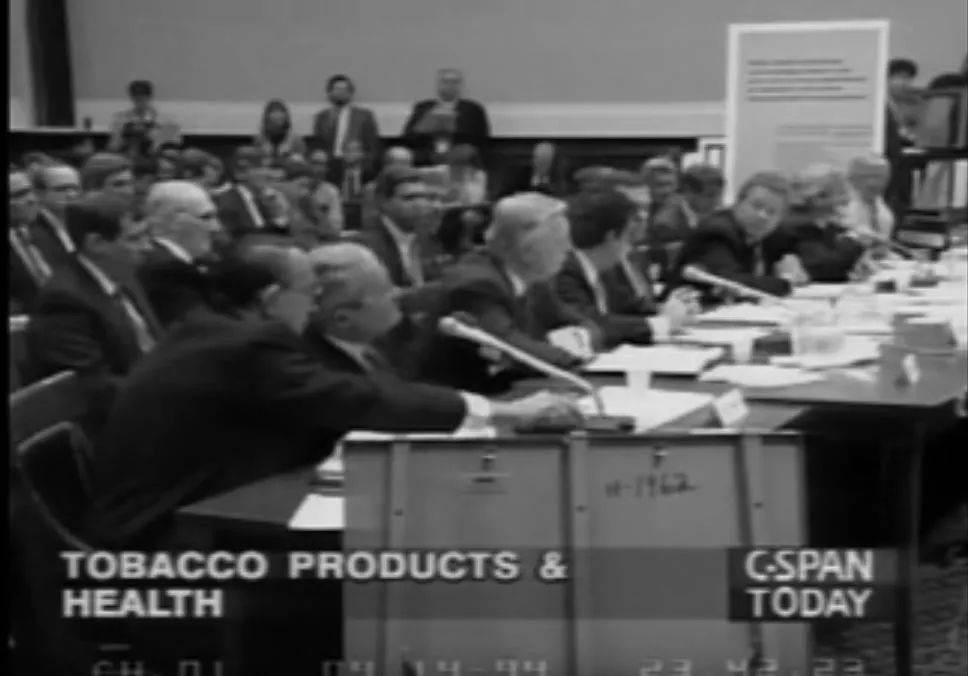
Radiation is a word that makes people turn pale at the smell.
Smokers are the most common [radiation victims].
Why do you say that? Because tobacco naturally contains polonium, an element that can emit deadly radiation. Simply swallowing 0.000001 grams of polonium can kill an adult weighing 60 kilograms.
Smokers around the world consume at least 3 trillion cigarettes every year, and each cigarette continuously sends highly toxic polonium into smokers’ lungs.
The U.S. Investigation report revealed a more terrible secret than this:
Several international tobacco giants, knowing that cigarettes contain the deadly radioactive element polonium, have concealed the truth for nearly 50 years.

Removing radiation from smoke? No, it’s still important to make money.
Let’s go back to the United States of the era mentioned in the previous paragraph more than 50 years ago.
At that time, it was the time of cigarette control.
In the early 20th century, medical technology was not very developed, and it was not common sense that smoking was harmful to health, because no one could prove that smoking was the main culprit of some lung diseases.
Under this background, tobacco companies can advertise without scruple.
They just packaged harmful cigarettes into Gao Da’s [health care products], creating an unprecedented sales climax and making a lot of money.

Marx said that for 100% profit, capital dares to trample on all human laws.
In order to keep far more than 100% of the benefits, tobacco companies have given up the lives and health of countless smokers.
It was a few scientists in the 1960s who first knew about the existence of radioactive substances in tobacco, as well as scientists within tobacco companies.
Neither instinctively nor morally, scientists will sit idly by. In the 1970s, experts in tobacco companies proposed some methods to reduce polonium, such as cleaning tobacco leaves directly with diluted hydrogen peroxide solution and improving tobacco planting methods.
Although the plan is feasible, the rich tobacco groups are surprisingly consistent.
R.J. Reynolds, a large tobacco company that produces Camel cigarettes and was once the world’s third largest tobacco group, said in a memorandum: “Removing these substances will not bring any commercial returns.”
Another big company, Liggett Tobacco Group, which once produced L & M brand cigarettes and is one of the world’s best selling cigarette brands, said: “Cleaning tobacco leaves will cause tobacco to lose its unique aroma”.
The subtext of tobacco companies is on the verge of coming out:
[We will definitely not do anything that affects making money].
The price is that the radioactive polonium content has not been improved by any measures and continues to exist in tobacco and enter the body of every smoker.
As long as the public does not know, it will never happen.
Do you think the tobacco company’s [inaction] is over?
Next, they did more to cover up the truth.
On the issue of radiation hazards of polonium, professionals have discussed the most and are also very heated. They do not want radioactive elements to continue to harm the world.
Since it is not allowed to be removed, is it okay to change the method and let everyone know clearly that polonium is contained in tobacco? After all, the right to know is one of the basic rights of citizens. Everyone has the right to know the harm and then make a choice.
A retired vice chairman of Philip Morris (the company that produces Marlboro cigarettes and was once the world’s largest tobacco group) confirmed that his company and the tobacco industry had long known about the existence of polonium and had set up a measurement laboratory.
Another internal expert of the company also testified that [when the company set up a low-dose radiation measurement organization, it also developed some detection methods].
However, the final result is still no surprise. The testing organization was shut down by the tobacco company.
The company even brazenly explained that if more people knew about this, it would only bring us to court.
The public has been kept in the dark for more than 50 years.
This also means that the polonium content in cigarettes has not changed for half a century.
Conscience is worthless in front of capital.
As early as 1965, scientists from Harvard University’s School of Public Health confirmed through research that the radioactive element polonium did gather in specific areas of the lungs.
Even within tobacco companies, there are scholars who specialize in the harm of smoking, and they have made many discoveries.
However, if you open the website of any tobacco company, you will definitely not see any information referring to tobacco and radioactive substances in tobacco and smoke.
This kind of dead silence is too strange.
Why? The important reason is that tobacco companies block the news through various means.
External scientists and tobacco companies will not interfere too much, after all, the news will only be popular among professionals.
What is more important is to keep the inside insider’s mouth shut.
It is very important that scientists in the tobacco industry have more first-hand information and must ensure that they have no chance to publish it publicly.
In order to do this, tobacco companies have formed a strong legal team.

In order to prevent the news from coming out, lawyers tried every means to control it, even breaking the law.
In 2006, Justice Gladys Kessler ruled that several tobacco companies had committed illegal and criminal acts.
He concluded in the judgment:
[(Tobacco companies) attempt and do prevent/stop ongoing research, hide existing research and destroy sensitive documents in order to evade relevant liability.]

Scientists with conscience have no chance to publish.
R.B. Richardson, a researcher at British American Tobacco, is a typical example. He has done a lot of research on polonium, but after reporting it to the company again and again, he gets the same reply again and again and will not publish it.
In 1985, he reluctantly wrote in a note:
[The appendix is a draft of polonium research I wrote some time ago.]
[Because I can’t do more work, it will never see the light one day.]
In front of capital, the painstaking efforts made by scientists are worthless.
Now when it comes to the harm of smoke, it is nothing more than lung cancer, tar, carbon monoxide… and radiation in smoke, a long overdue thing, is rarely mentioned.
Inhale radioactive elements in your lungs, do smokers around you know?
As a smoker, do you know that you are exposed to [radiation] every day?
